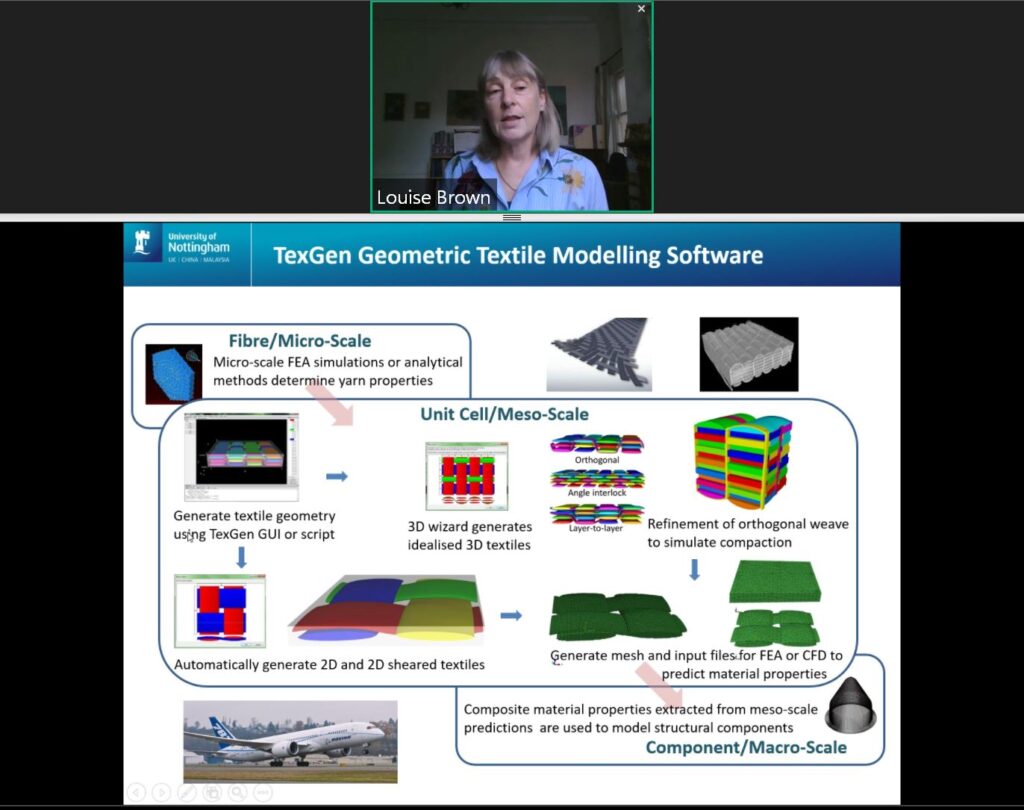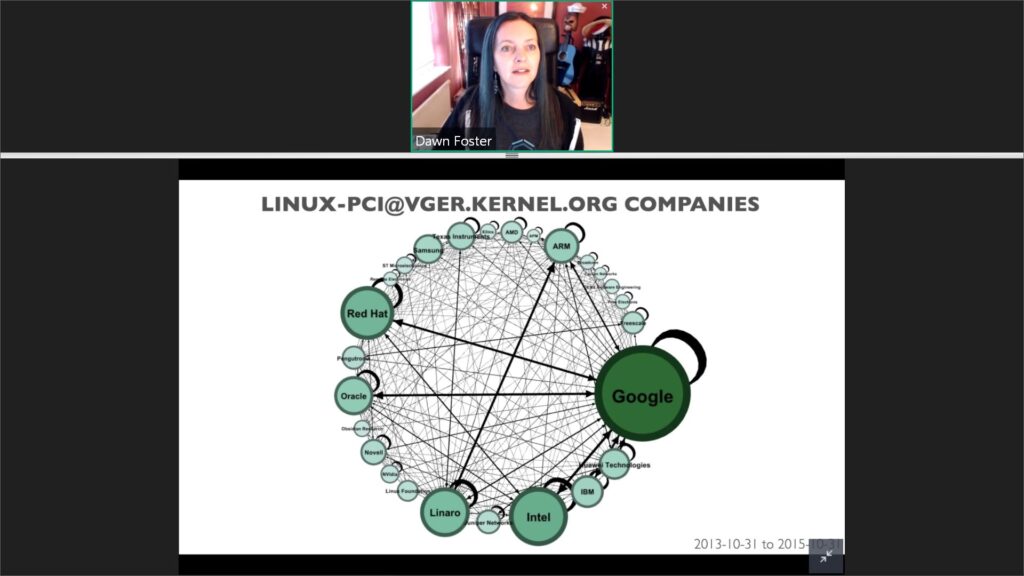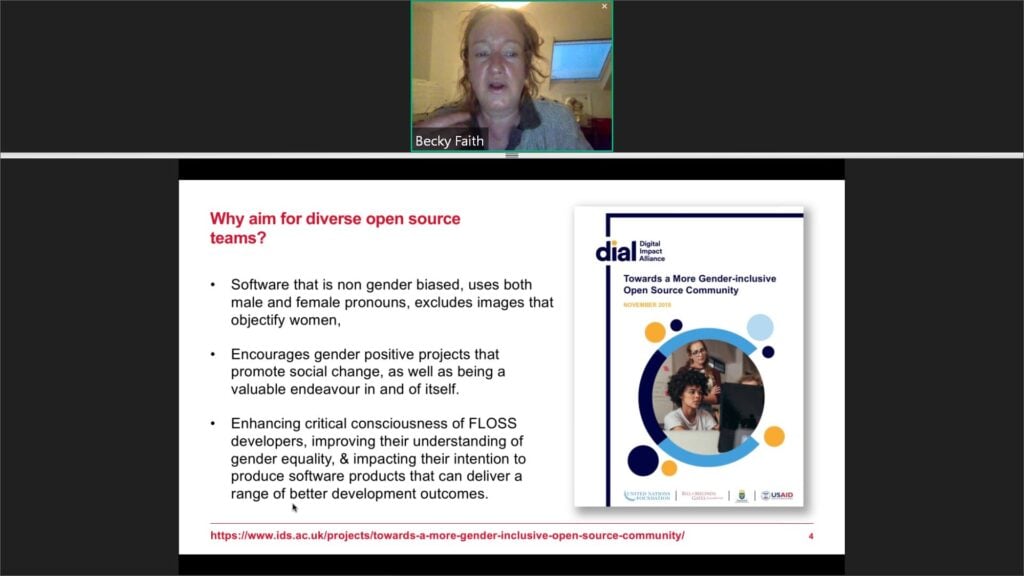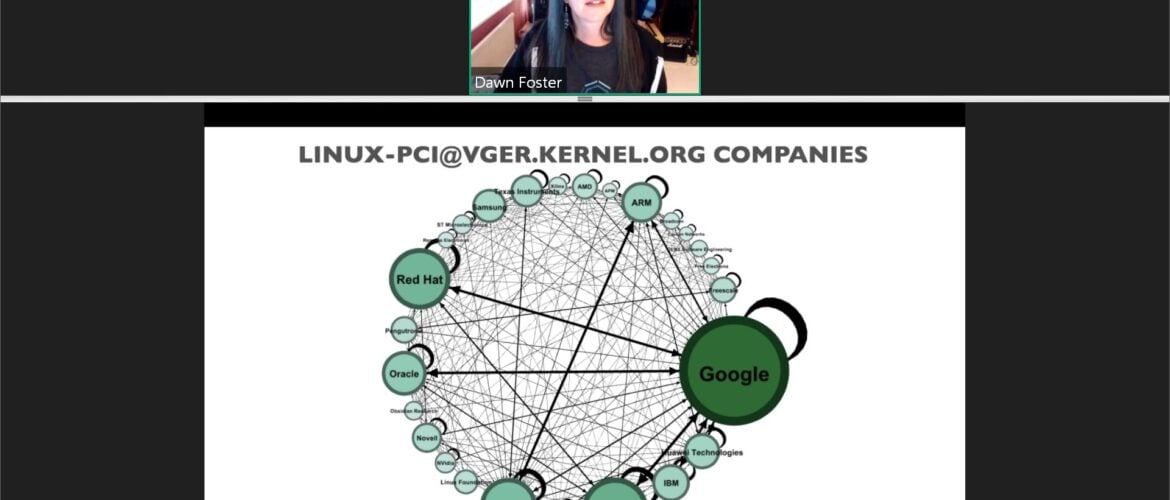At this evening meeting online, we’ll be welcoming four women, all of whom are pursuing a career in open source. This is a joint meeting with BCS Women.
Please register on Eventbrite for a free ticket. We shall also be livestreaming via GoToMeeting, and later posting the videos on our YouTube channel for those who are unable to make it.
The importance of open standards in addressing Big Tech monopoly power
From advocates, politicians and technologists, calls for doing something about big tech grow louder by the day. Yet concrete ideas are few or failing to reach the mainstream. This talk will cover what breaking up big tech would mean and why it’s not enough. Irina will propose an open intervention that will give people a real choice and a way out of controlled walled gardens. Google, Facebook, Amazon and Apple are not natural monopolies and we need to regulate them to support competition and alternative business models.
Irina Bolychevsky is the founder and director of Redecentralize.org. She’s a digital strategist and expert on data, open data, data platforms, standards, privacy and decentralised technology. She led the ckan open source data platform to international adoption, served on Open Knowledge Foundation’s senior management team and now as a board member and developed the personal data infrastructure programme within the UK’s Government Digital Service. She developed the Smart Dubai’s and UAE federal policy, regulatory, commercial and technical frameworks for data exchange and ran one of the first UK data trust pilots and researched digital identity for the Open Data Institute.
See Ira talking on this topic on YouTube.
Modelling and simulating textiles with TexGen

This talk will outline the development of the TexGen project, describing its use for modelling various types of textiles and the types of simulations which are run and the mechanical and manufacturing properties which can be predicted using the models. It will look at how it has been advantageous to release the software as open-source rather than taking a more traditional commercialisation route.
Dr Louise Brown is a Senior Research Fellow in the Faculty of Engineering at the University of Nottingham. She currently holds an EPSRC Research Software Engineering Fellowship on Software for Textile Modelling and Simulation. On completion of her PhD, Design of a Filament Winding Cell, she worked for several years in the Computer Science Department at Nottingham working on automated design tools for CAD systems for industrial embroidery machines. She worked from home as a self-employed software engineer for thirteen years before returning to the Composites Research Group at Nottingham in 2009. She is responsible for development of TexGen (http://texgen.sourceforge.net ), open source software for modelling the geometry of textile structures. The software has an increasing user base worldwide with over 41,000 downloads since its initial release in 2006. She has implemented new functionality to include modelling of the complex 3D weaves being used increasingly by the aerospace industry and is involved in research to optimise more complex textile structures.
Collaboration on the Kernel mailing lists

While there is quite a bit of data about the people and companies who commit Linux kernel code, there isn’t much data about how people work together on the kernel mailing lists where they decide what patches will be accepted. Using a few of the top subsystem mailing lists as examples, Dawn Foster will share her PhD research into how people collaborate on the kernel mailing lists, including network visualizations of mailing list interactions between contributors. You can expect to learn more about the people, their employers, and other data that impacts how people participate on the mailing lists. For example, do timezones influence collaboration? How about source code contributions? Dawn will also give a brief overview of her 20+ year career both before and after going back to school to get her PhD along with some information about her involvement in OpenUK.
Dawn is an open source strategist and Kubernetes contributor at Pivotal, now part of VMware. She has 20+ years of experience at companies like Intel and Puppet with expertise in community building, strategy, open source software, metrics, and more. She is passionate about bringing people together through a combination of online communities and real-world events along with analyzing the data associated with participation in developer and open source communities. Dawn is on the Governing Board of the Linux Foundation’s CHAOSS project and is a maintainer for several of the working groups. She is also on the board of OpenUK, a UK organisation committed to develop and sustain UK leadership in Open Technology. She holds a PhD from the University of Greenwich along with an MBA and a BS in Computer Science. She has spoken at dozens of industry events, including many Linux Foundation events, OSCON, SXSW, FOSDEM and more.
Towards A More Gender-Inclusive Open Source Community

Dr. Becky Faith is a Research Fellow and Leader of the Digital and Technology cluster at the Institute of Development Studies at the University of Sussex. Becky’s professional experience and research interests encompass gender and technology, mobile communication studies, human computer interaction and technology for social change.
Becky has fifteen years’ strategic and programme experience working in ICT for development and technology for human rights organisations. She started her career in digital start-ups, working on the UK’s first e-commerce platforms in the 1990s.
Becky will be talking about her research on ‘Towards A More Gender-Inclusive Open Source Community’; which set out to better understand why women are underrepresented and do not always feel welcome or supported in open source communities. She will be talking about what the open source community can do to encourage participation by women around the world; what strategies work best to achieve greater participation? Conformist, reformist or transformist? Do we help women cope with the inequalities they face or do we try and address the transform the unequal power structures that underpin these issues?
